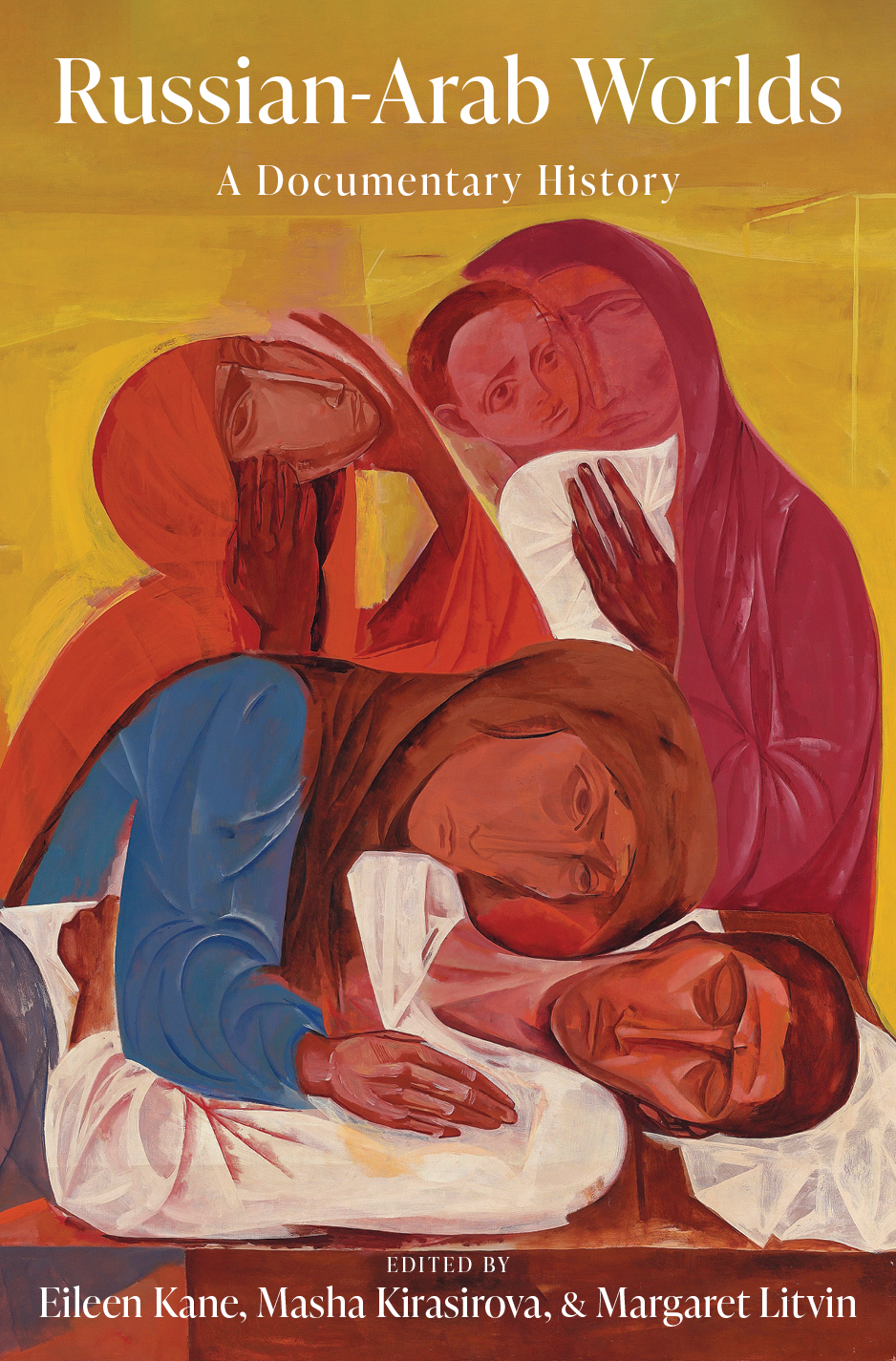The roots of Arab countries’ current Russian entanglements reach deep into the Soviet and even tsarist periods. This book launch will celebrate and explore the new anthology Russian-Arab Worlds: A Documentary History, which points to a new way of teaching and studying Russia, its borderlands and neighbors in the Caucasus and Central Asia, and its Arabic-speaking interlocutors.
Poster (PDF)
The anthology presents and contextualizes a diverse set of primary sources translated from Russian, Arabic, Armenian, Persian, French, and Tatar, each introduced by a specialist and appearing in English for the first time: a 1772 Russian naval officer’s diary, an Arabic slave sale deed from the Caucasus, a report on Russian delegates at the 1926 Mecca Congress, the memoir of an Egyptian engineering student in Astrakhan, and many more. Each of the 34 chapters challenges a prevailing assumption in its own field. These documents show how various Russian/Soviet and Arab governments sought to nurture political and cultural ties and expand their influence, often with unplanned results. They illuminate transnational networks of trade, pilgrimage, study, ethnic identity, and political affinity that states policies sometimes fostered and sometimes disrupted.

